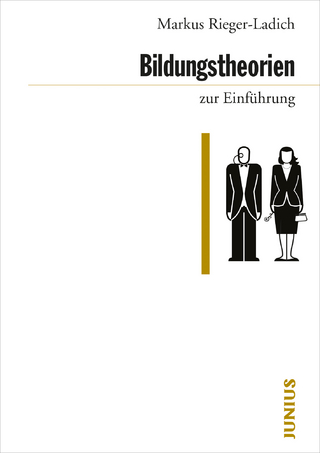
Managing the Cycle of Acting-Out Behavior in the Classroom
Corwin Press Inc (Verlag)
978-1-4833-7436-9 (ISBN)
Minimize problem behavior and maximize student success!
Acting-out behavior by students manifests in ways that make classroom management and academic success very challenging.
In this time- and field-tested resource, Colvin and Scott present a system for understanding acting–out behavior in terms of seven phases and correcting it before it gets in the way of student engagement and learning. The newly updated edition draws on the latest research to deliver a clear roadmap for educators to assess acting-out behavior and to design effective interventions in a clear, systematic, and achievable matter.
Rooted in applied behavior analysis, sound instructional principles, and functional behavior assessment, Colvin and Scott’s method includes:
Strategies for each phase of the acting-out cycle—from structuring the classroom, to managing agitation and escalated behavior, to recovery
Case studies that distill concrete action steps from the book’s concepts
Checklists, tools, resources, and templates for applying the book’s principles to any classroom.
No educator should be without this definitive guide to classroom management and social skill development that sets the stage for student success in school.
"This book is a must-have resource for any classroom teacher in today’s school setting. The authors have translated decades of behavioral research into teacher relevant language and provided real-world examples of how the behavioral support concepts and strategies work."
-Amy M. Owsley, First Grade Teacher
Clear Creek Elementary, Shelbyville, KY
"Colvin and Scott have developed a guide that provides teachers with the clear steps and tools to dramatically impact student behavior in any classroom."
-Sharon Carter, School improvement Specialist
Carter International Consulting
Geoff Colvin draws on his experience as a classroom teacher, administrator, researcher and instructor at the University of Oregon, and national public school consultant. Widely recognized as an expert on the subjects of school safety and violence prevention, Colvin has provided inservice training for teachers and administrators in more than 100 school districts and agencies nationally and internationally. He recently served as research associate at the University of Oregon and independent consultant in the areas of schoolwide discipline, school climate, school safety, and violence prevention, classroom management, and individual cases involving students with severe behavior disorders. Geoff also directed a juvenile detention school and a school program for youth with serious emotionally disturbances. Colvin has authored more than sixty publications, books, book chapters, journal articles, and video programs on the subject of teaching and managing students who exhibit the full range of problem behavior. Terrance M. Scott is a senior principal education researcher at the Stanford Research Institute (SRI). Before joining SRI in 2020, Dr. Scott spent 24 years as a professor and researcher in special education. He began his career as a counselor in residential treatment and has worked with students with challenging behaviors across a variety of settings. Since receiving his PhD in Special Education at the University of Oregon in 1994, Dr. Scott has written over 100 publications, has conducted well more than 1,000 presentations and training activities throughout the United States and across the world, and has successfully competed for more than $24 million in external grant funding. In 2004 he received the Distinguished Early Career Award from the Research Division of the International Council for Exceptional Children, and in 2012 he received the Outstanding National Leadership Award from the Council for Children with Behavior Disorders. He was elected president of this organization in 2013 and served as a two term editor of the journal, Beyond Behavior. His research interests focus on schoolwide prevention systems, the role of instructional variables in managing student behavior, functional behavior assessment/intervention, video-based training for school personnel, and scientific research in education.
Introduction
Section One: A Proactive Approach
1. A Proactive Approach - Emphasizing Student Success
Section Two: A Model
2. Analyzing Acting-Out Behavior
3. A Seven-Phase Model for Describing Acting-Out Behavior
Section Three: Strategies for Managing Each Phase of the Acting-Out Cycle
4. Structuring the Classroom to Enhance Instruction, Phase 1
5. Instructional Practices for Engaging Students, Phase 1
6. Precorrection Strategies for Triggers, Phase 2
7. Functional Behavioral Assessment for Triggers, Phase 2
8. Teaching Social Skills for Managing Triggers, Phase 2
9. Calming Strategies for Managing Agitation, Phase 3
10. Defusing Strategies for Managing Acceleration, Phase 4
11. Safe Management Strategies for Peak Behavior, Phase 5
12. Reintegration Strategies for De-escalation, Phase 6
13. Resumption Strategies for Recovery, Phase 7
Section Four: Closing
14. Summary and Case Study
Appendices
References
| Verlagsort | Thousand Oaks |
|---|---|
| Sprache | englisch |
| Maße | 177 x 254 mm |
| Gewicht | 540 g |
| Themenwelt | Sozialwissenschaften ► Pädagogik |
| ISBN-10 | 1-4833-7436-X / 148337436X |
| ISBN-13 | 978-1-4833-7436-9 / 9781483374369 |
| Zustand | Neuware |
| Informationen gemäß Produktsicherheitsverordnung (GPSR) | |
| Haben Sie eine Frage zum Produkt? |
aus dem Bereich


